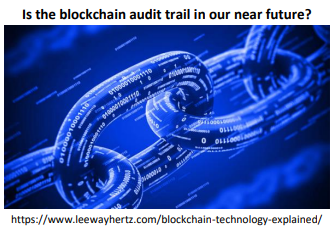Questões de Concurso
Para sefaz-mg
Foram encontradas 200 questões
Resolva questões gratuitamente!
Junte-se a mais de 4 milhões de concurseiros!
1 == '1' e 1 === '1'
Os resultados são, respectivamente,
Assinale a opção que indica seu principal objetivo.
O principal pilar da orientação a objetos usado nesse design pattern é
Assinale a opção que indica o nome correto desse membro do time.
Em relação aos tensores, assinale a opção incorreta.
Em relação ao código pyspark acima, assinale a afirmativa incorreta.
Assinale a opção que não figura como uma característica da arquitetura de Hadoop YARN.
Em relação aos RDDs e a suas operações, assinale a afirmativa incorreta.
As opções a seguir apresentam características do framework Spark, à exceção de uma. Assinale-a.
O HDFS foi projetado para armazenar arquivos grandes como uma sequência de blocos.
Em relação à replicação dos dados, assinale a afirmativa incorreta.





I. Auditors should try to keep abreast of the latest developments in technology.
II. CPA auditors’ skepticism is an asset to the profession.
III. Those involved in auditing seems to be rather refractory to change.

( ) The effects of blockchain technology in auditing nowadays are quite clear.
( ) It will be necessary for CPA auditors to acquaint themselves with the fundamentals of blockchain and to team up with specialists to gauge technical hazards.
( ) The interest in blockchain technology is already dwindling.
The statements are, respectively
Ana, após atingir a maioridade, decidiu livremente, considerando os laços afetivos que criara, se tornar nacional de determinado país da América Central. Ao ser acusada da prática de crime neste último país, decidiu fugir para o Brasil.
À luz dessa narrativa, é correto afirmar que, caso seja solicitada a extradição de Ana, ela
Sobre a incidência do ITCD sobre tais valores, assinale a afirmativa correta.